Pandemic fatigue and a crisis within a crisis
Welcome to the 2022 Health, Wealth & Happiness Report, the annual LifeSearch deep-dive into UK trends, experiences, finances, and emotions. Covering 2021 and early 2022, LifeSearch examine UK health and mental health, finances, reflections, friendship and our fears for the future.
For the first time Health, Wealth and Happiness is split along race and ethnicity lines to show that the pandemic, and measures taken in its name, was not equal in its impact across Britain’s different communities.
And we see a major new shockwave in national morale that was caused by a war in Europe that will impact living costs and has already forced our sense of financial security into a nosedive.
There's not much optimism to go around, but there are pockets of positivity and hope in the chaos. All we can do is wish you good health, wealth and happiness through another chaotic chapter.
2022 Health, Wealth & Happiness Report headlines
Click the buttons for a snapshot of the headlines in health, wealth and happiness. See where we spent big during 2021, and how the shockwave of war hit UK morale hard.

We can see the emerging legacy impact of Covid on our health and mental health, and how different groups experienced the pandemic.
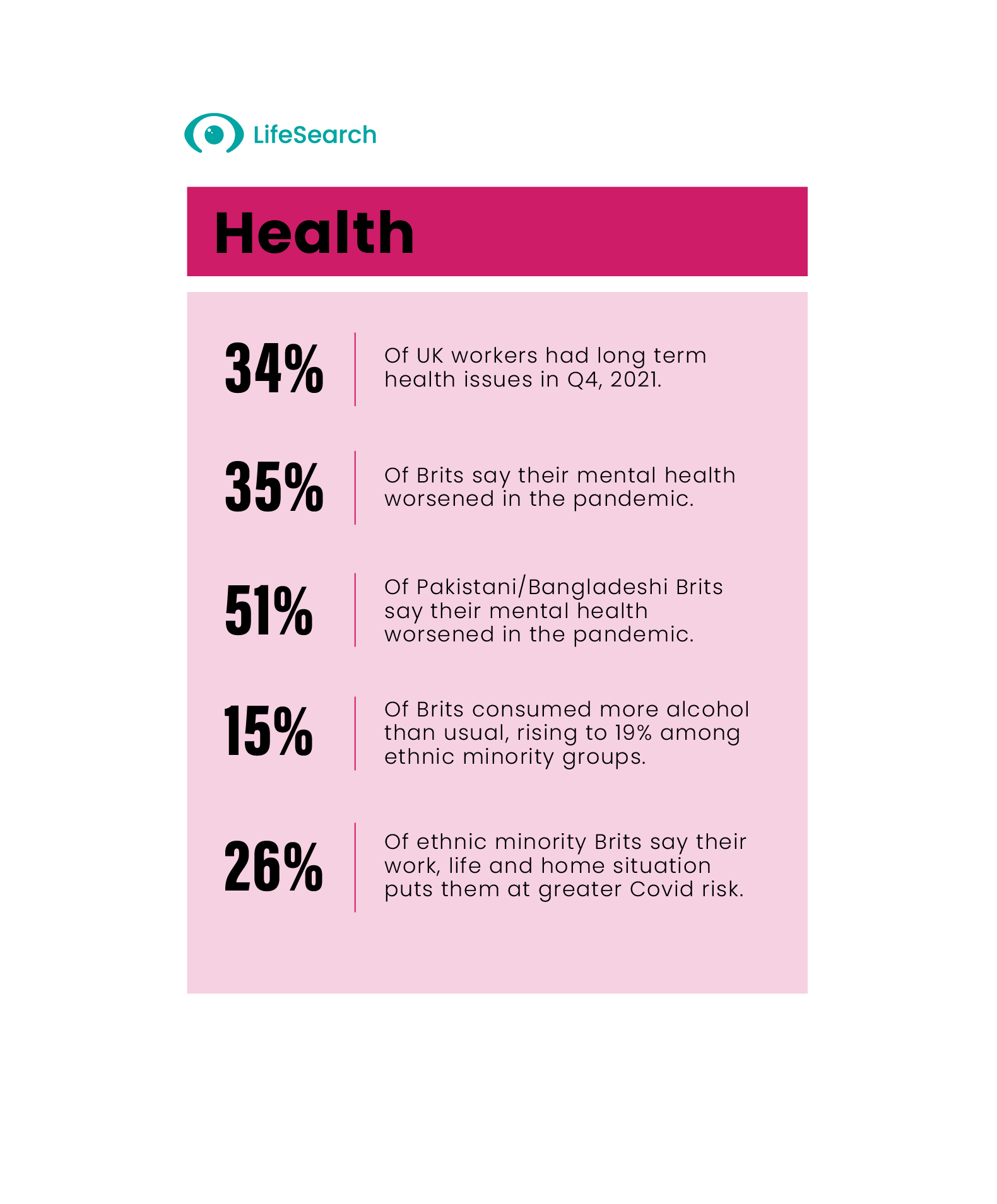
The Wealth Index was artificially frozen last year; propped up by government measures and a strong housing market but now, as we know, the thaw has begun.
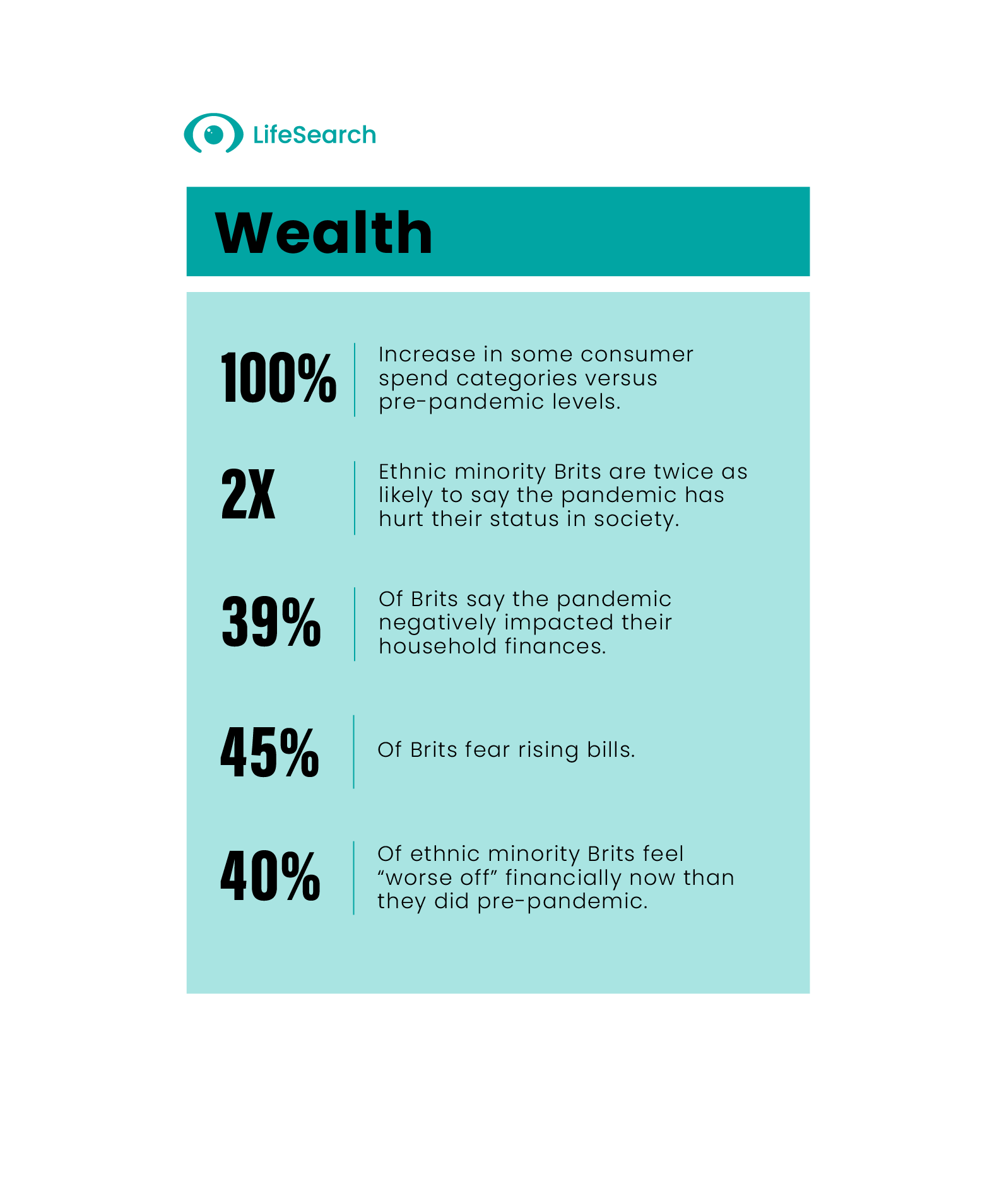
A stable work/ life balance masks feelings of financial and job insecurity for many. We saw ten-year-lows in UK happiness in 2021, worse even than 2020.
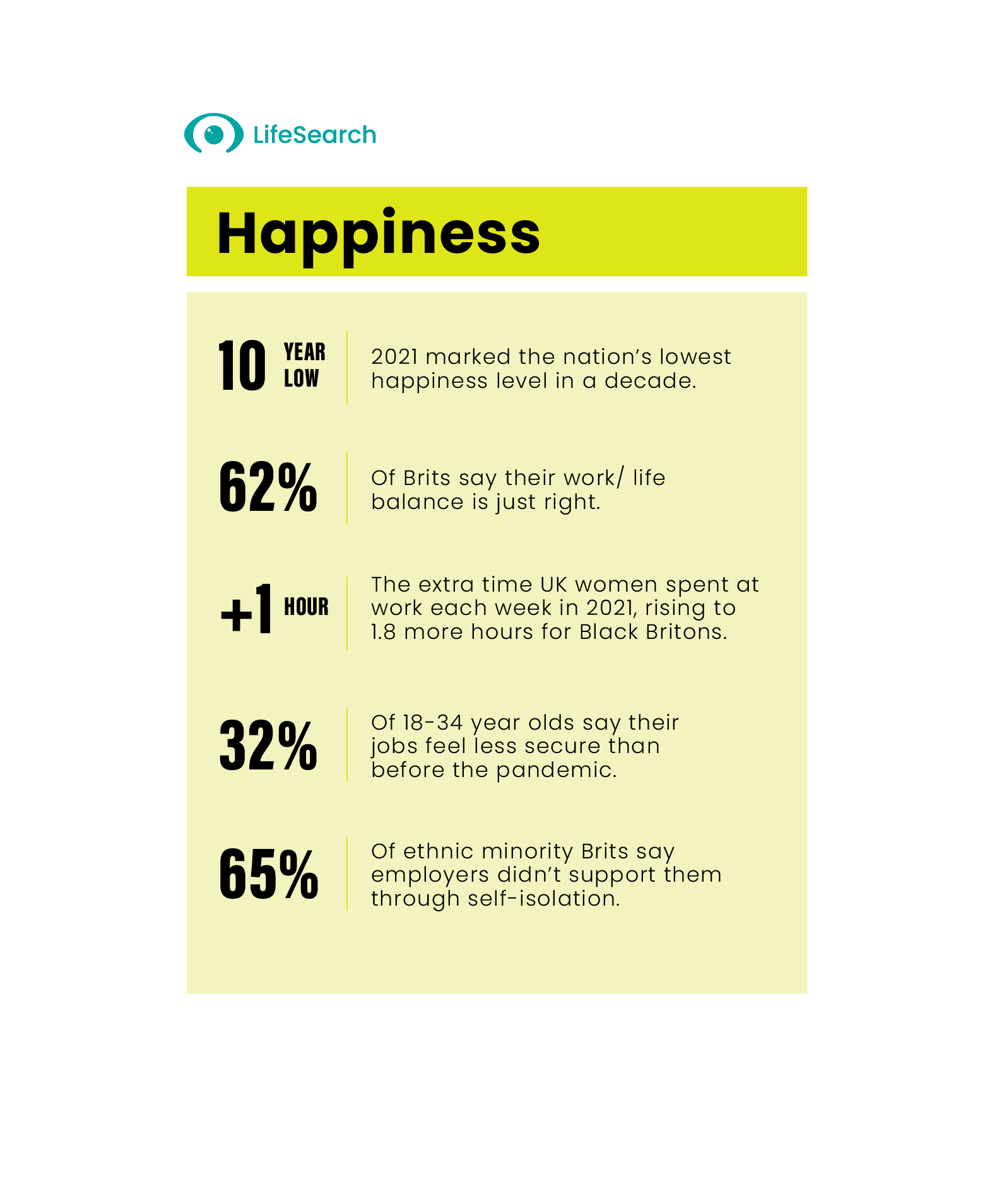
Many demographics report poorer mental health in 2021 than in 2020. There’s little difference between men and women in ‘better’ mental health, but in ‘worse’ mental health it’s once again women who exceed the national average.
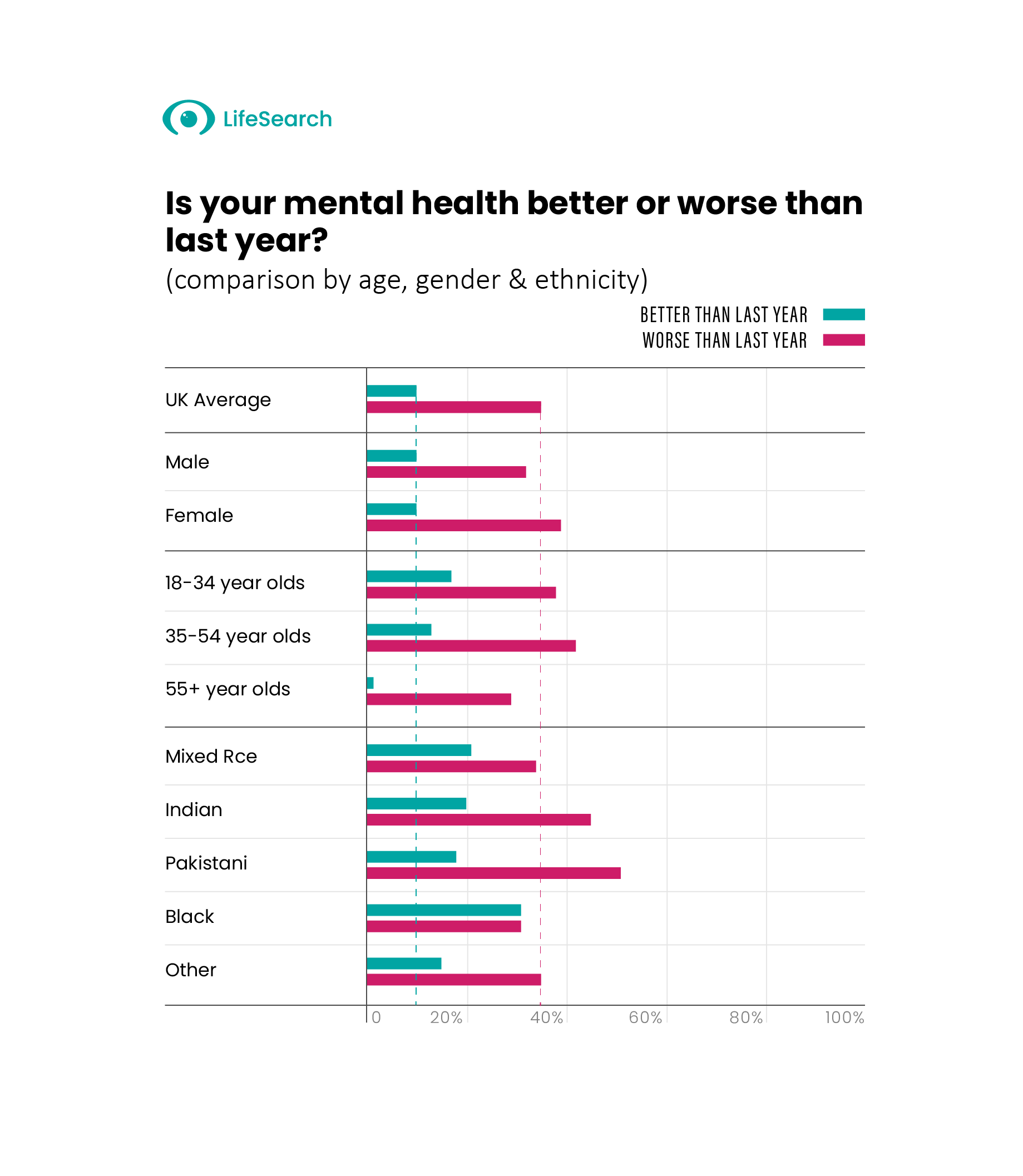
Pent-up demand from 2020 was released in 2021 as Britons spent a lot more in virtually all consumer categories.
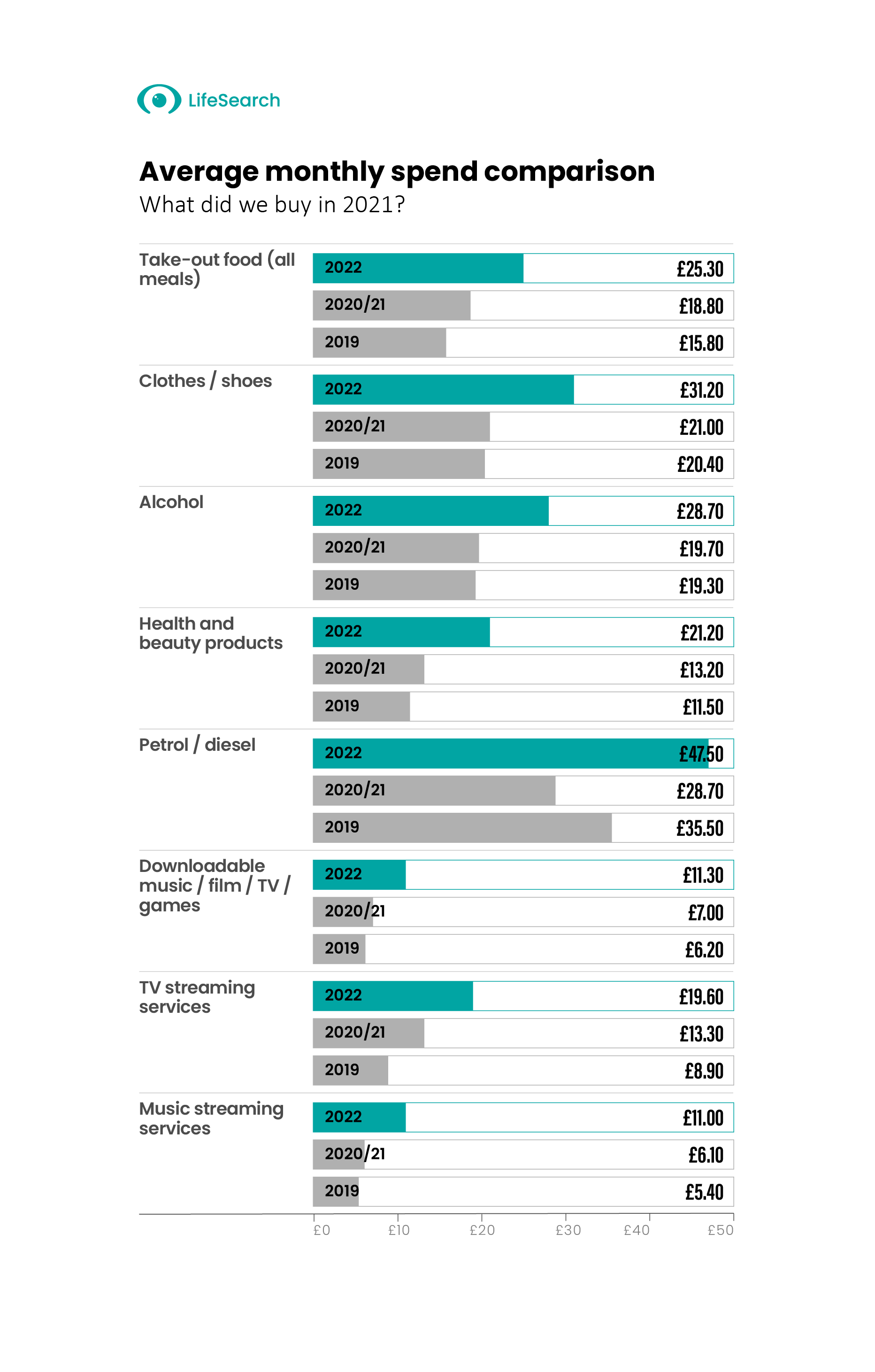
War in Ukraine caused spikes in stress, sadness and fear comparable with the onset of the pandemic. In some cases it was even more palpable.
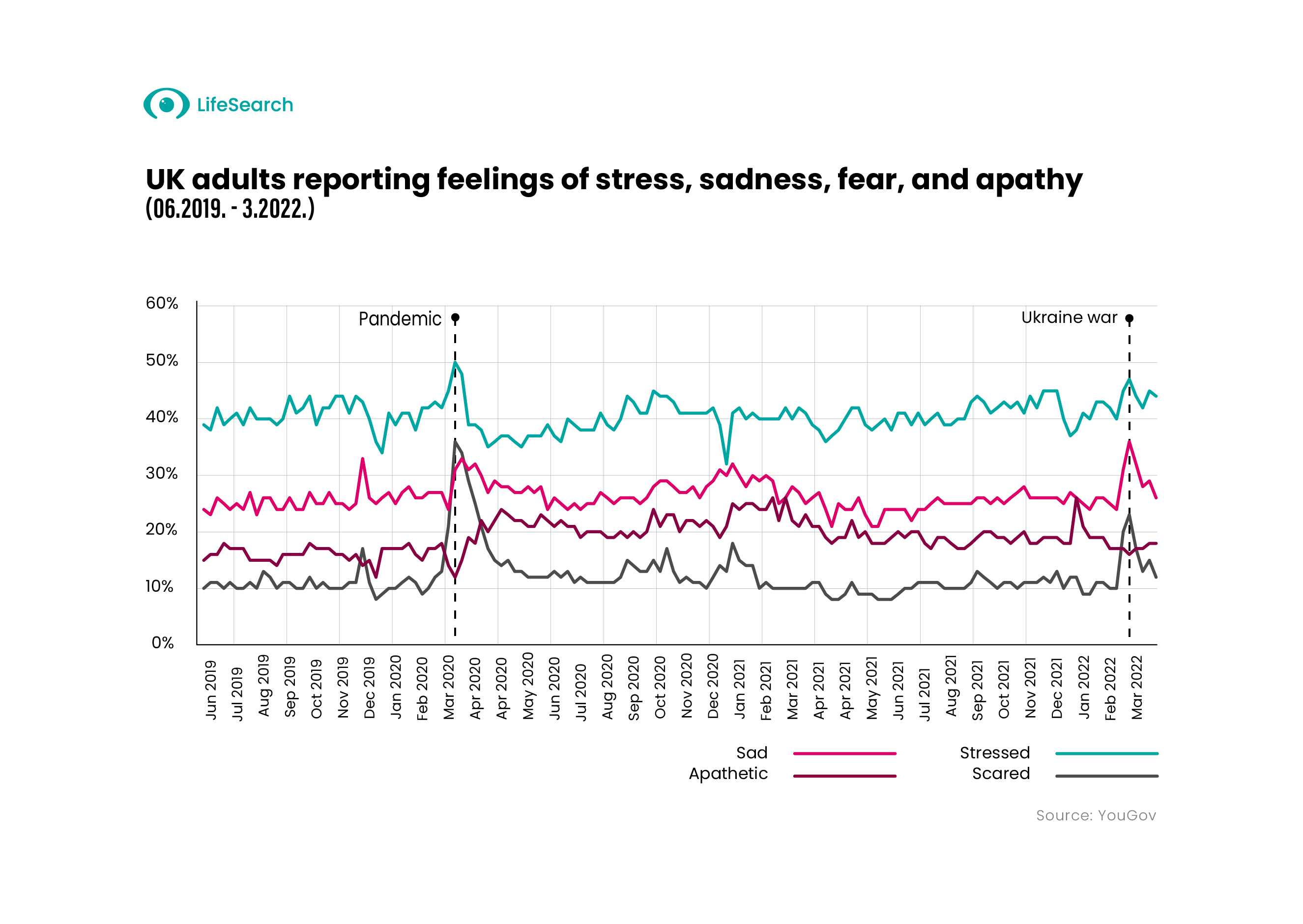
More headlines from this report
Cutting the data by ethnic group shines a new light on the pandemic experience in different UK communities. Lost status, financial manoeuvring, job insecurity, changing friendships … some insights will surprise, others not so much.

Many Brits feel they’ve lost significant status through the pandemic. Some ethnic minority Britons particularly believe their position in society has suffered.
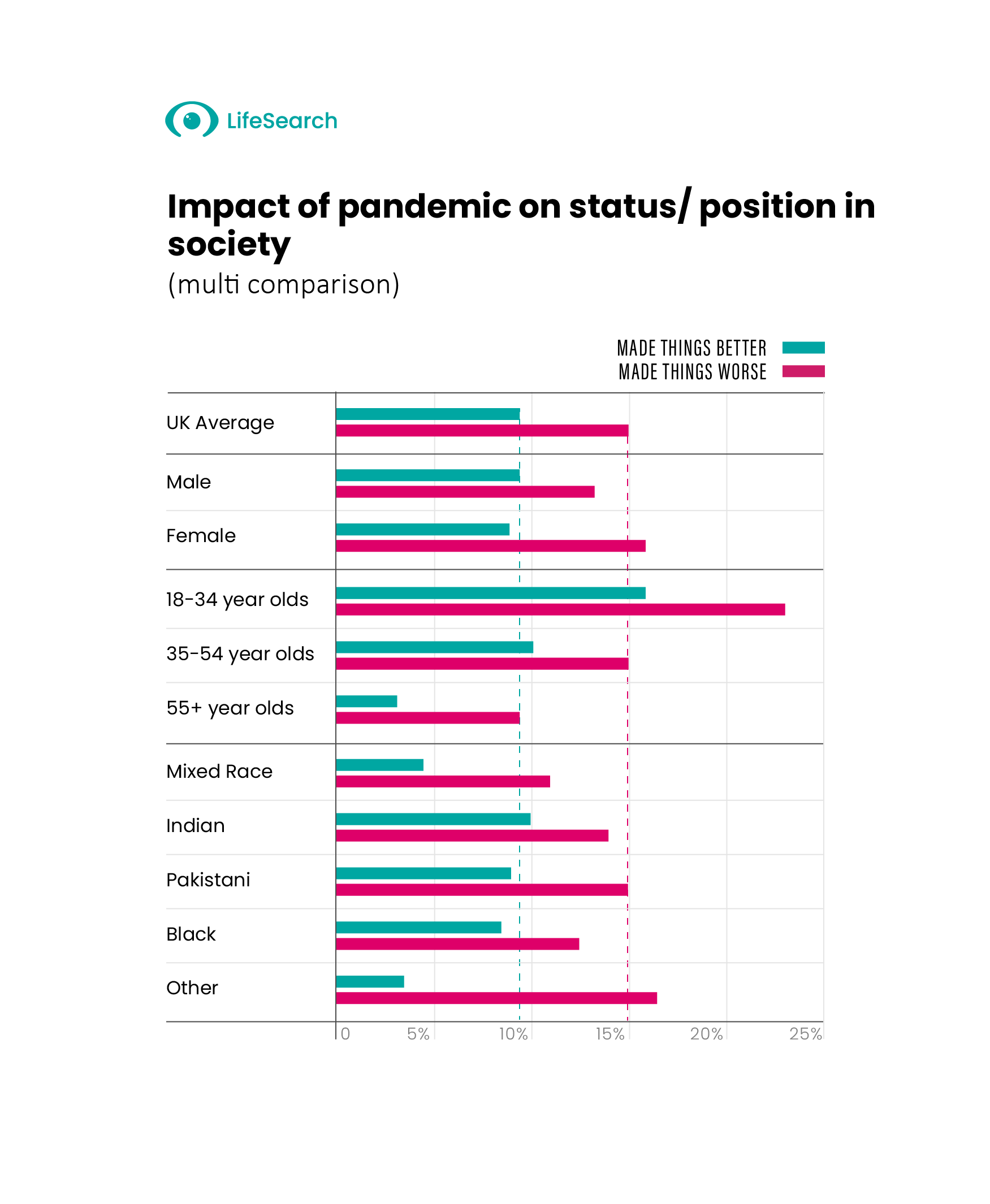
We asked survey respondents whether they felt that, given their work / life/ home set-up, they are more or less at risk than average of catching Covid. Black Britons believe their risk is double.
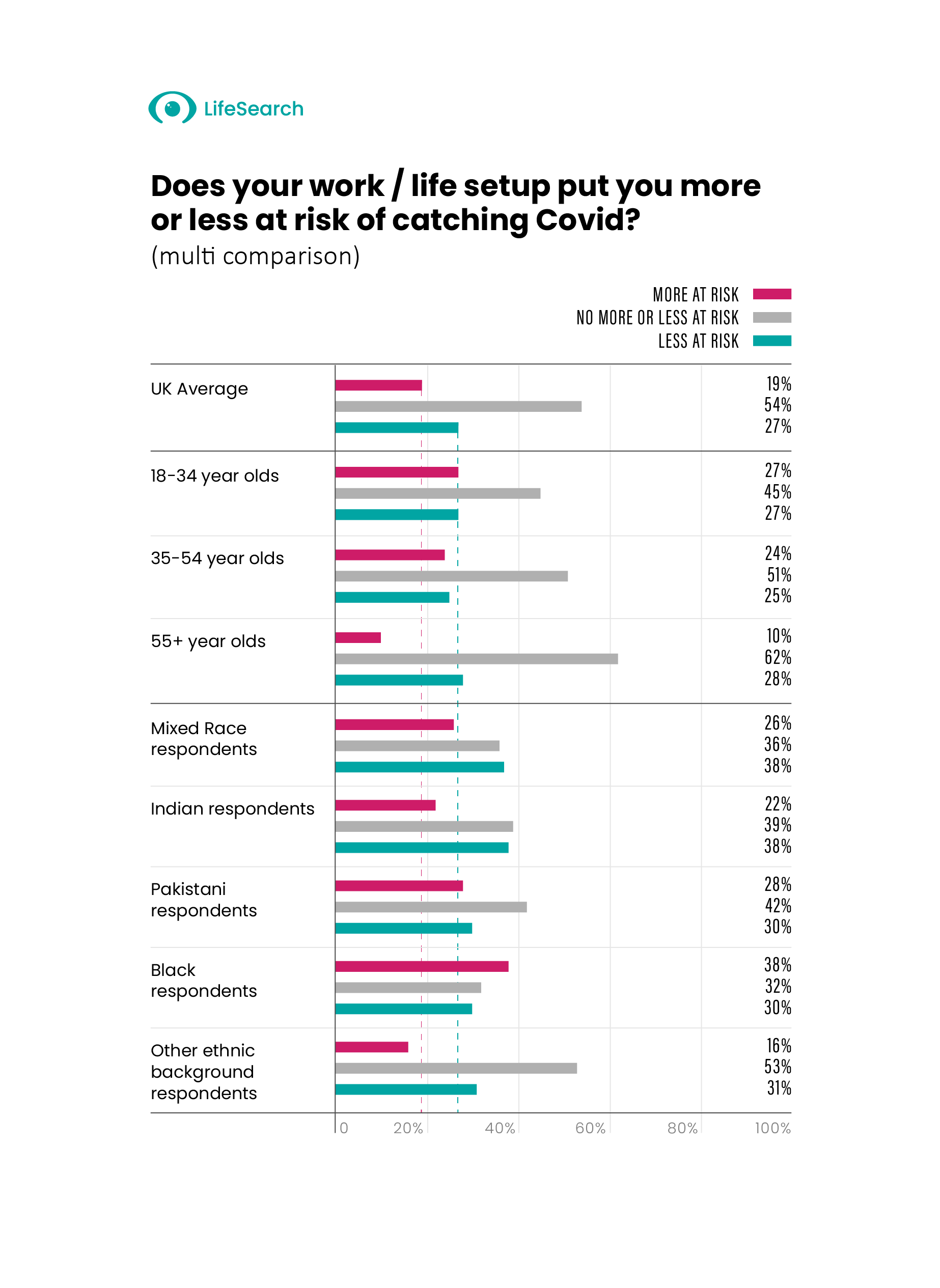
Asked to evaluate their employers’ practical support through the pandemic, ethnic minority Britons reported a lack of help in several categories. And through a time of great strain and struggle, it seems employer mental health support was lacking.
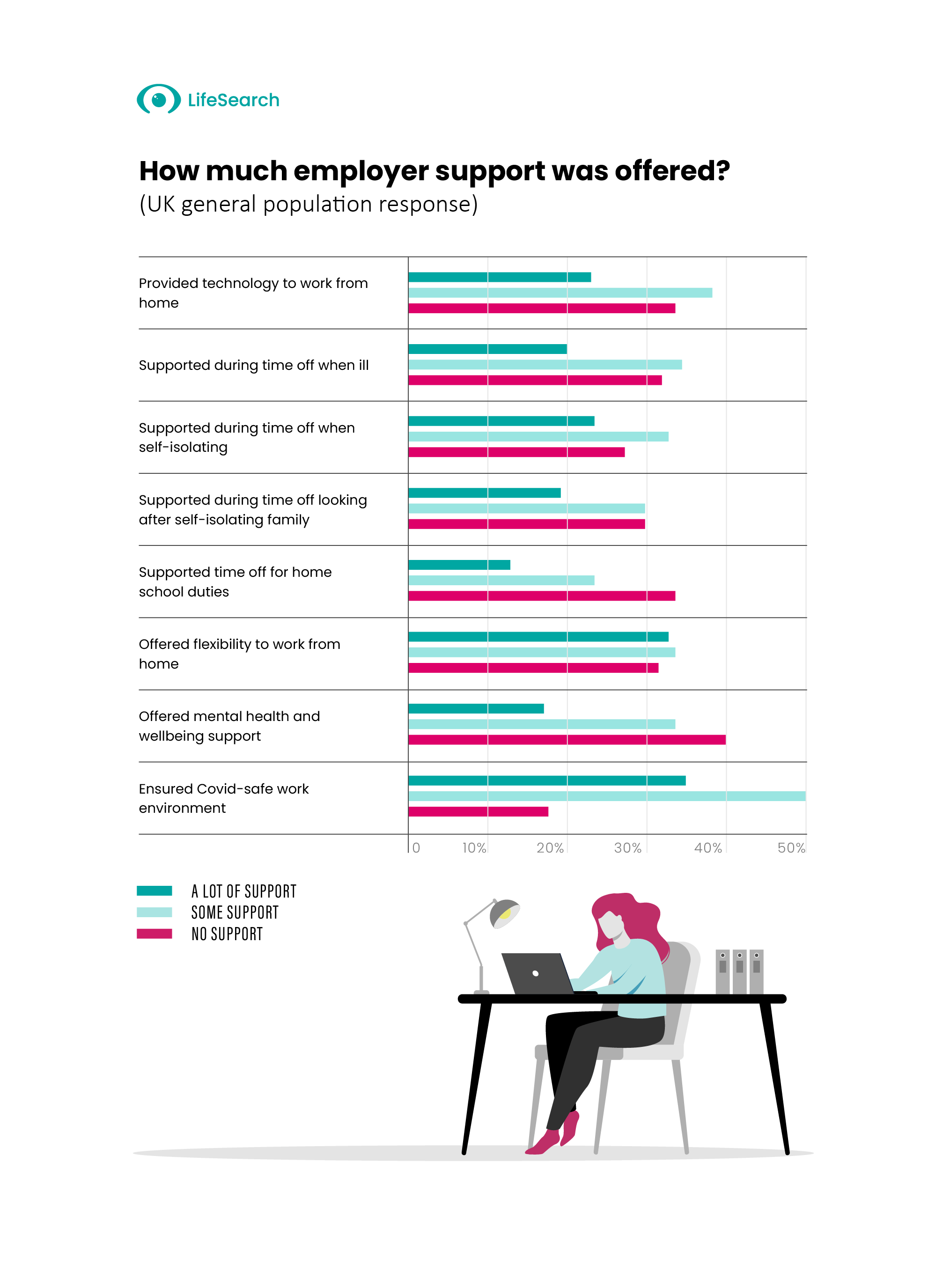
A snapshot of Brits’ financial fears and the ways we feel we’re exposed in tougher financial times.
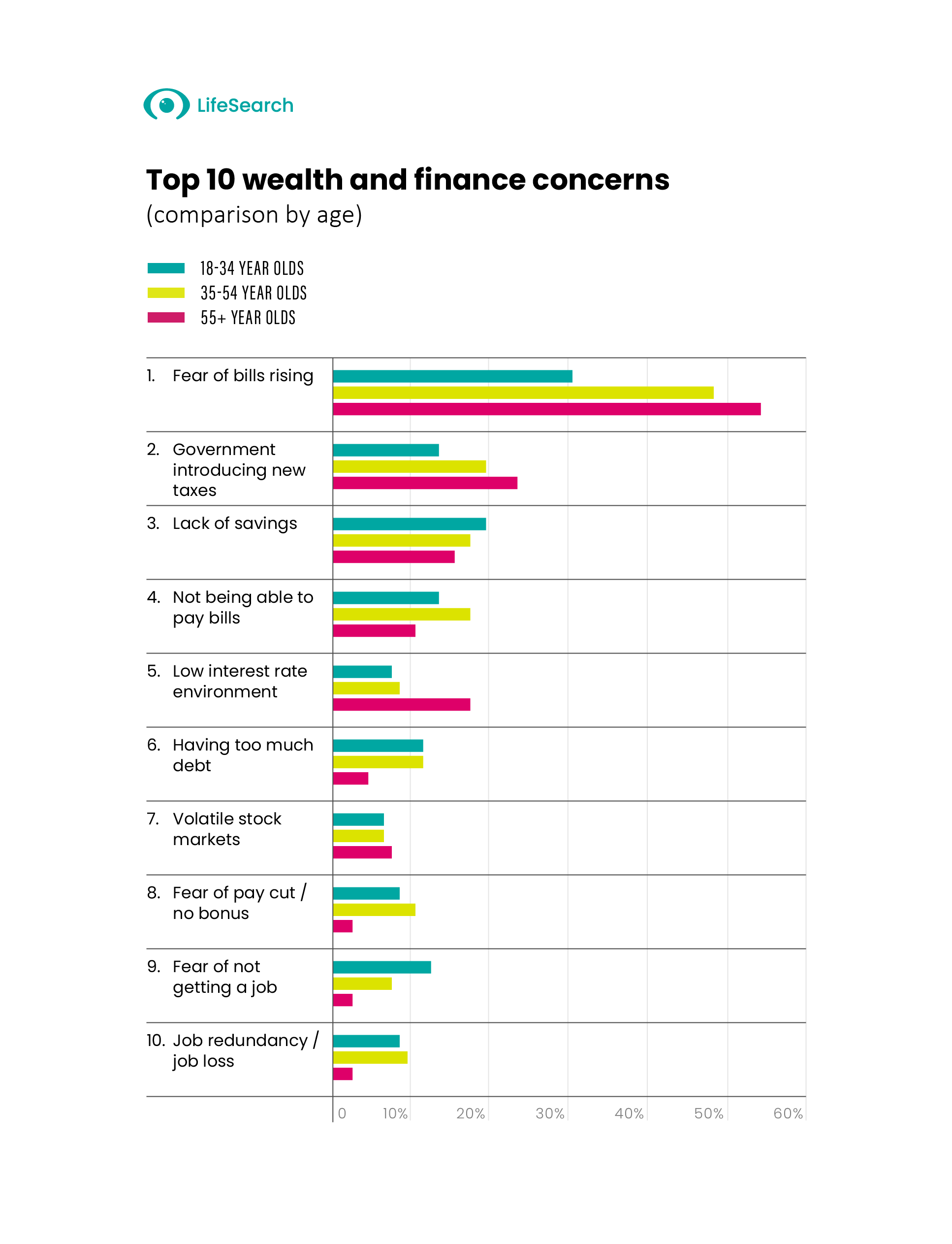
As we saw in 2020, the pandemic continued to prompt changes in our financial behaviour. Some have been positive, some not. Here we see that significant numbers put off purchases, took on debt and considered / bought protection products.
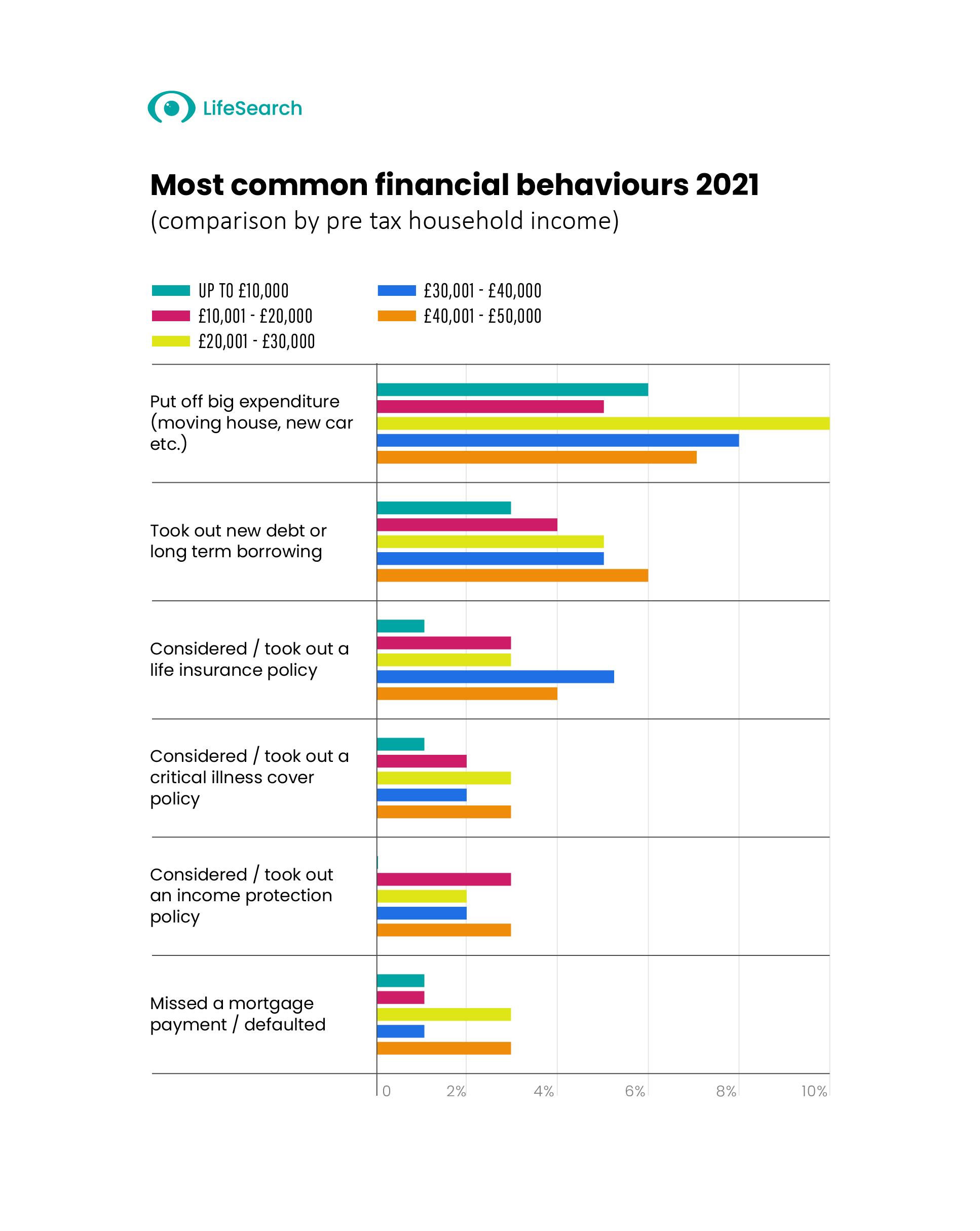
Last year, job insecurity was keenly felt in younger age groups. While “high” feelings of job insecurity are still prevalent in younger Brits, general feelings of job insecurity are being particularly felt in the 35-54 age group and among women.
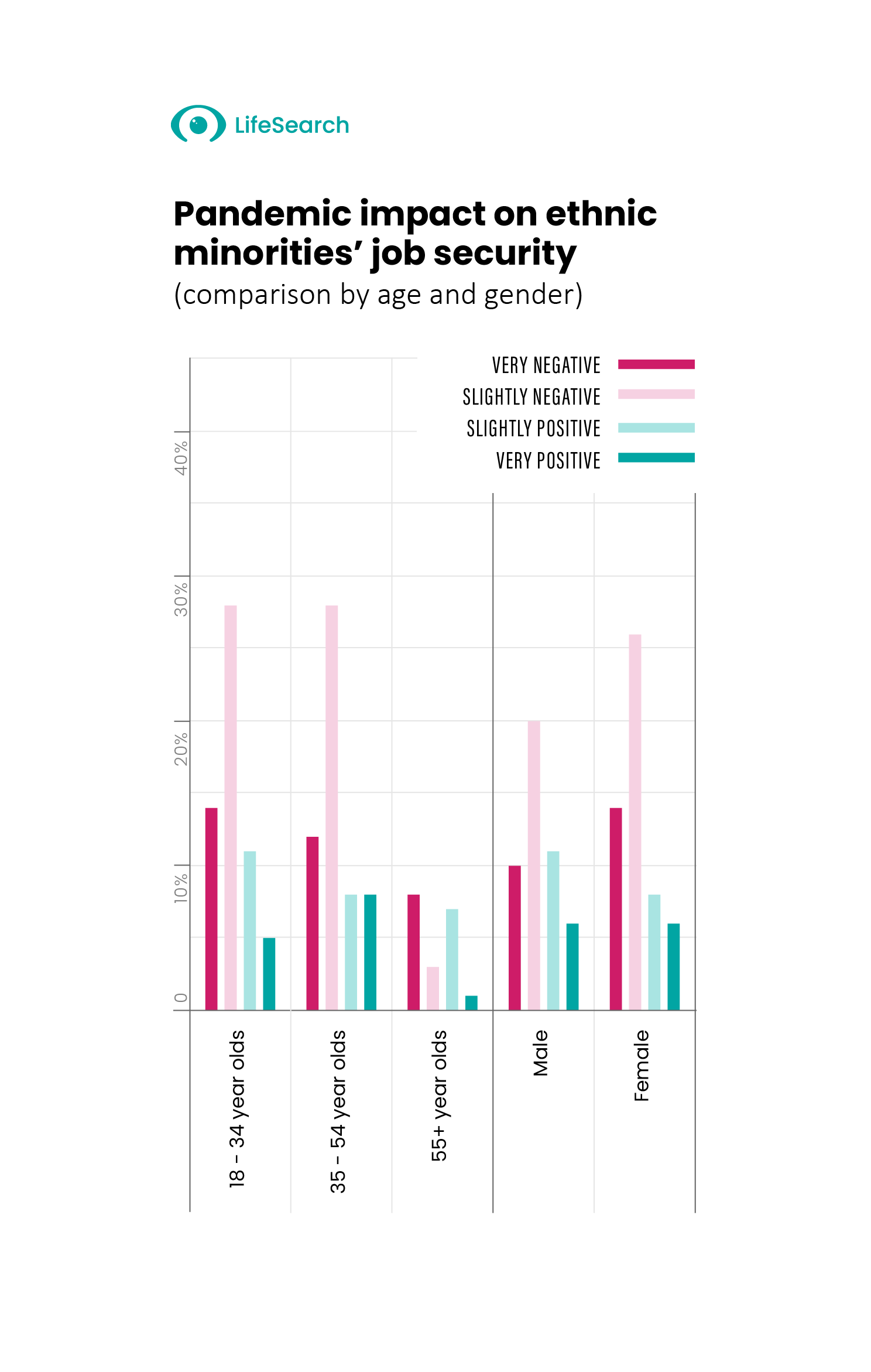
To say the pandemic and its measures have been contentious is an understatement. As a result Brits have binned some friendships and gained others. Here shows friendship gains by region.
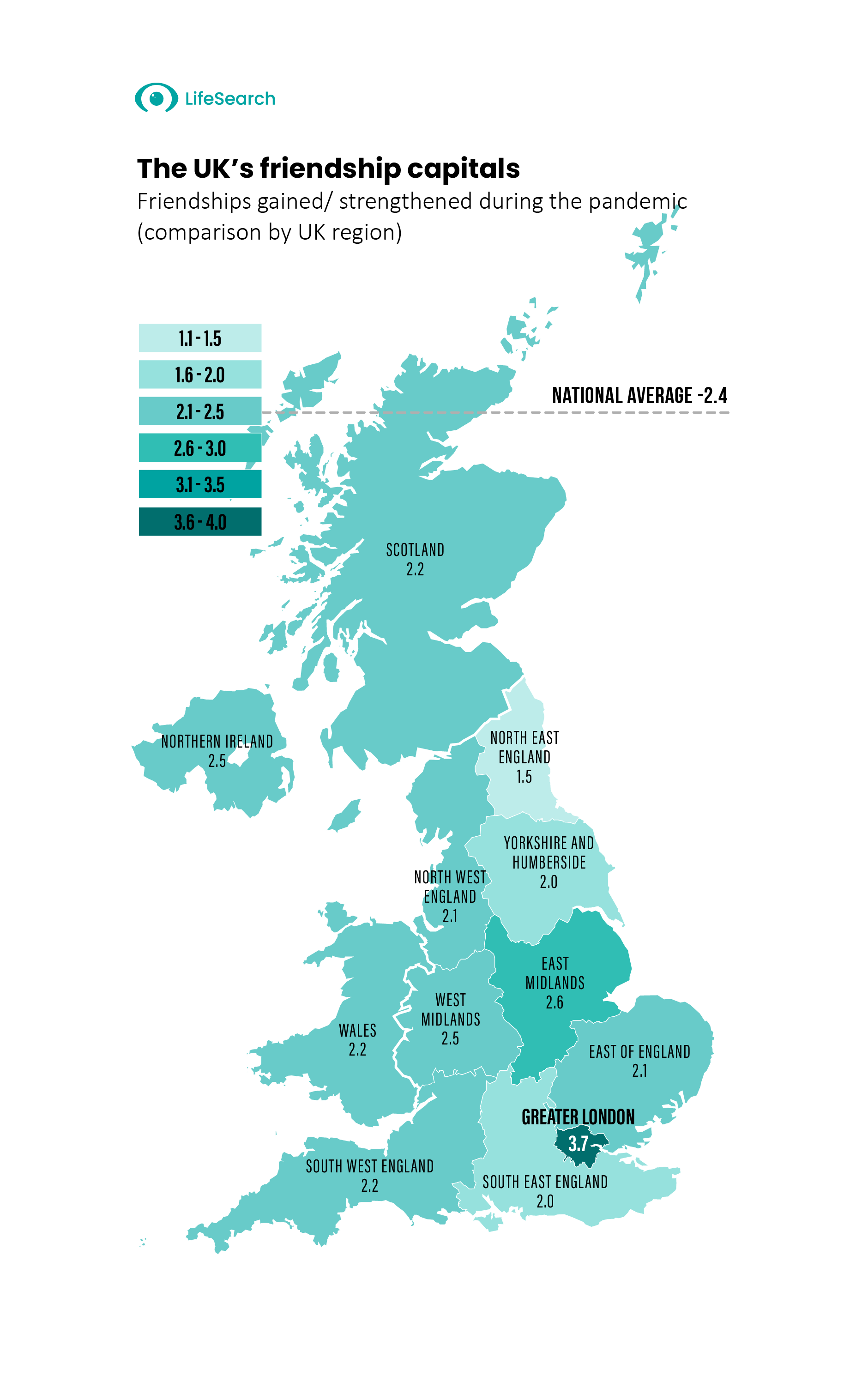
Health, Wealth & Happiness in the media
Read the previous Health, Wealth & Happiness reports
2018 | 2019 | 2020/2021 Q1
